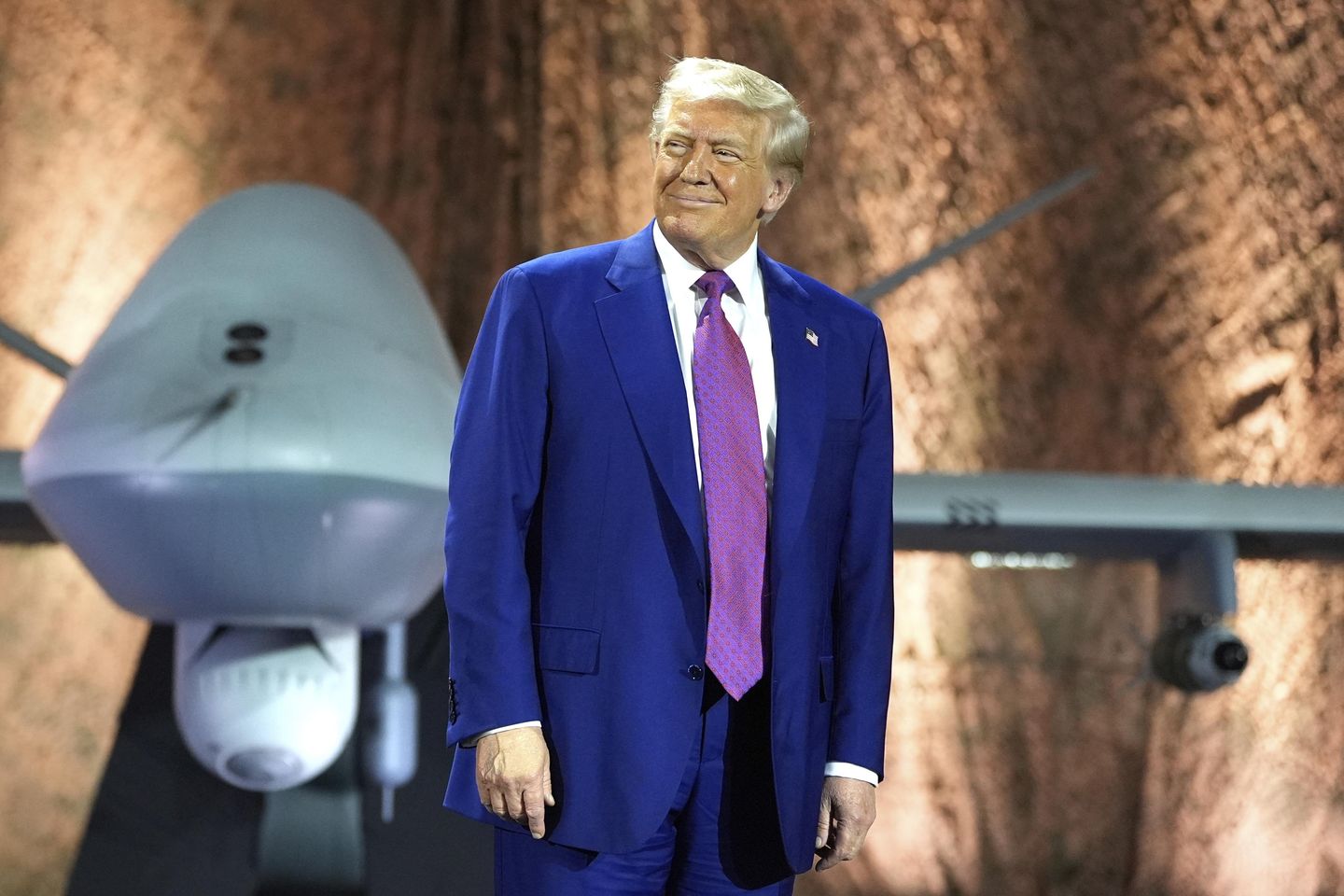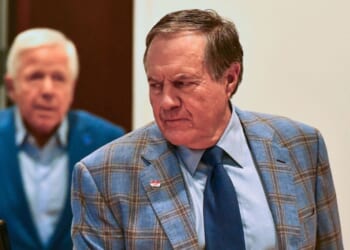
President Trump said Thursday that the U.S. and Iran had “sort of” agreed to the terms of a deal that would prevent Tehran from making nuclear weapons, a goal Mr. Trump has prioritized during every stop of his meetings with Middle Eastern allies this week.
Mr. Trump told reporters during a business roundtable in Doha, Qatar, that Middle East envoy Steve Witkoff and Iranian Foreign Minister Abbas Araghchi had been in “very serious negotiations with Iran for long-term peace.”
“If we do that, it’ll be fantastic,” Mr. Trump said.
Hours after Mr. Trump said the two sides were moving closer to a deal, Mr. Araghchi said Tehran’s ability to enrich uranium remained a core right of the Iranian people and a red line in nuclear talks.
“We have said repeatedly that defending Iran’s nuclear rights, including enrichment, is a fundamental principle,” he said. “This is not something we concede, either in public discourse or in negotiations. It is a right that belongs to the Iranian people, and no one can take it away.”
Mr. Trump said his demands have been straightforward.
“They can’t have a nuclear weapon. That’s the only thing. It’s very simple,” the president said. “It’s not like I have to give you 30 pages worth of details. It is only one sentence. They can’t have a nuclear weapon.”
The president has used his visit to the Gulf States to reject American “interventionalism” in the region. He spoke to U.S. troops Thursday at Al Udeid Air Base in Qatar, a U.S. military installation at the center of American involvement in the Middle East. The base houses some 8,000 U.S. troops, down from about 10,000 at the height of the conflicts.
Mr. Trump told the troops his “priority is to end conflicts, not start them.”
“But I will never hesitate to wield American power if it’s necessary to defend the United States of America or our partners,” he said.
Mr. Trump has held up Gulf nations such as Saudi Arabia and Qatar as models for economic development in a region plagued by conflict. He urged Qatari officials to use their influence to entice Iran to come to terms with his administration on a nuclear deal.
Ali Shamkhani, a top political, military and nuclear adviser to Iran’s supreme leader, Ayatollah Ali Khamenei, told NBC News on Wednesday that Tehran was ready to sign a nuclear deal with certain conditions.
He said Iran would commit to never making nuclear weapons, getting rid of its stockpiles of highly enriched uranium, agree to enrich uranium only to the lower levels needed for civilian use, and allow international inspectors to supervise the process. In exchange, the U.S. would immediately lift all economic sanctions on Iran.
Asked whether Iran would agree to sign an agreement today if those conditions were met, Mr. Shamkhani said, “Yes.”
Mr. Trump said of the negotiations with Iran, “They’re not going to be making any nuclear dust in Iran. And we’ve been strong. I want them to succeed. I want them to end up being a great country, frankly, but they can’t have a nuclear weapon.”
U.S. and Iranian negotiators had hours of discussions Sunday with Oman as the mediator. Sources told Axios that the U.S. gave Iran a proposal for a deal.
Mr. Trump has been unwavering in his stance that Iran cannot have a nuclear weapon. He said Wednesday, “That’s the only thing. It’s very simple.”
The president aimed to make his case against Iran’s nuclear program at every stop on his four-day trip through the region, which concludes Friday.
On the first leg, Mr. Trump met with Saudi Crown Prince Mohammed bin Salman and attended a Saudi-U.S. investment summit. He sounded optimistic about a deal with Iran and warned of consequences if the talks falter.
“If Iran’s leadership rejects this olive branch and continues to attack their neighbors, then we will have no choice but to inflict massive maximum pressure,” Mr. Trump said. He predicted that military action would reduce Iranian exports to zero.
He said the choice is Iran’s, but “this is an offer that will not last forever.” He called Iran “the biggest and most destructive” force in the Middle East.
Iranian President Masoud Pezeshkian responded by saying, “Trump thinks he can sanction and threaten us and then talk of human rights. All the crimes and regional instability is caused by [the U.S.]”
He said Mr. Trump “wants to create instability inside Iran.”
During a Wednesday meeting with Sheikh Tamim bin Hamad Al Thani, emir of Qatar, Mr. Trump said there were only “two courses” to dealing with Iran’s nuclear program.
“There aren’t three or four or five, there’s two. There’s a friendly and a non-friendly,” he said at a state dinner. “The non-friendly is a violent [path]. I don’t want that.”
The president praised Qatar for “working with us very closely with respect to negotiating a deal with Iran” but said Tehran “has to get moving.”
He called the situation with Iran perilous.
“We want to do it, something that’s going to save maybe millions of lives. Because things like that get started and they get out of control,” he said. “I’ve seen it over and over again. They go to war, and things get out of control, and we’re not going to let that happen.”
Diplomats from Iran, France, Britain and Germany are meeting Friday in Istanbul. Reuters reported that the EU big three nations have sought to align themselves with the U.S. stance and are considering “snapback” sanctions on Iran if a peace deal isn’t reached by August.
A date for the fifth round of talks between the U.S. and Iran hasn’t been announced.
• This article is based in part on wire service reports.












